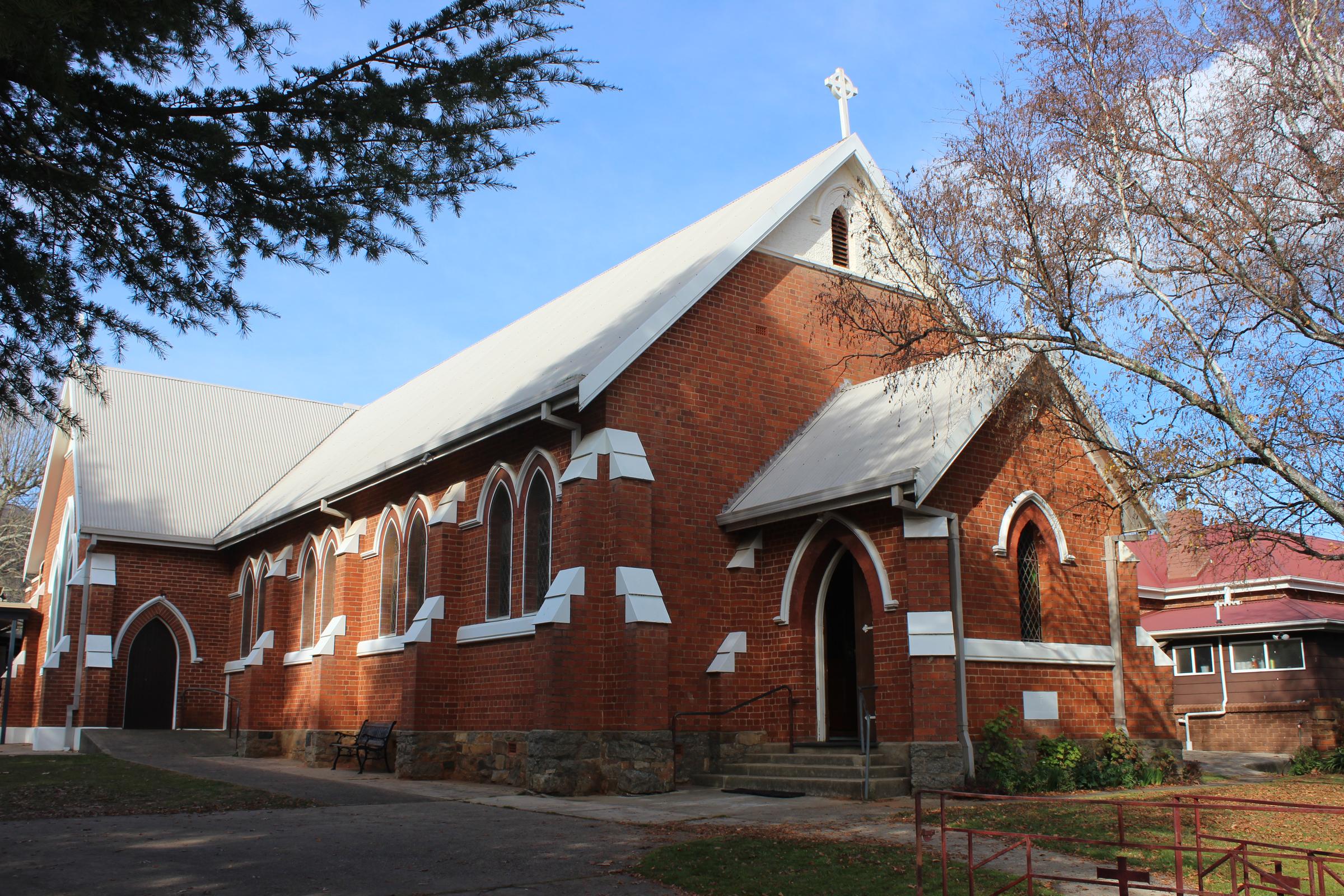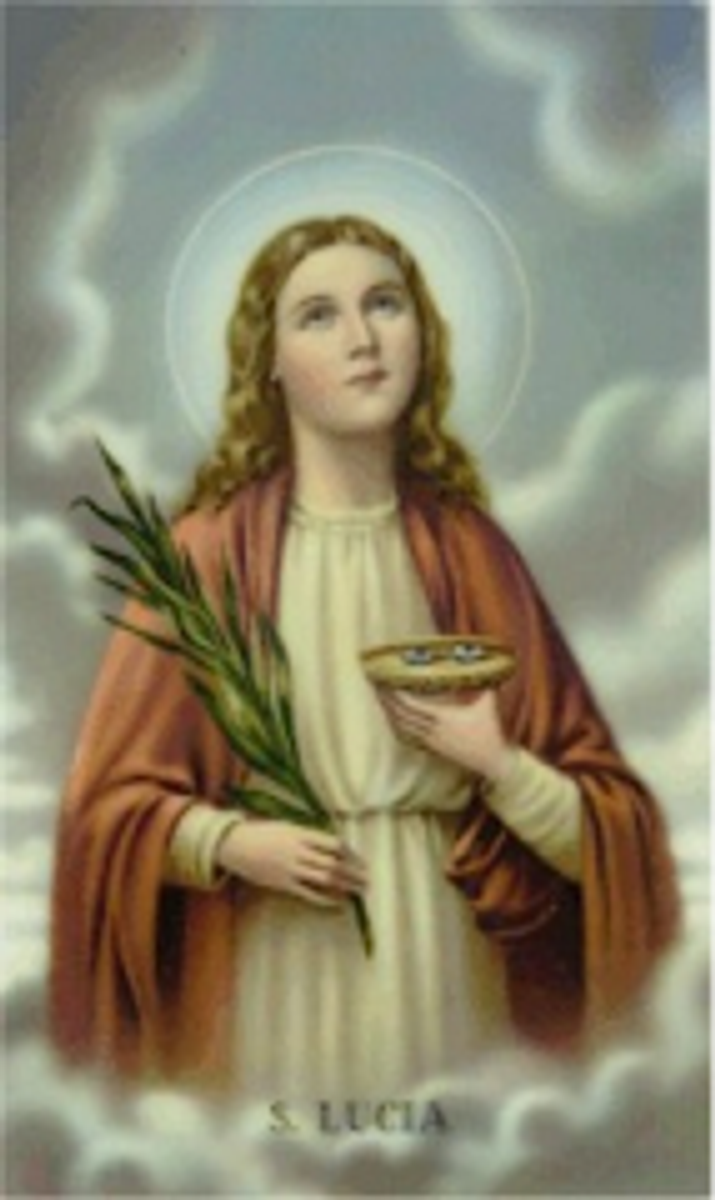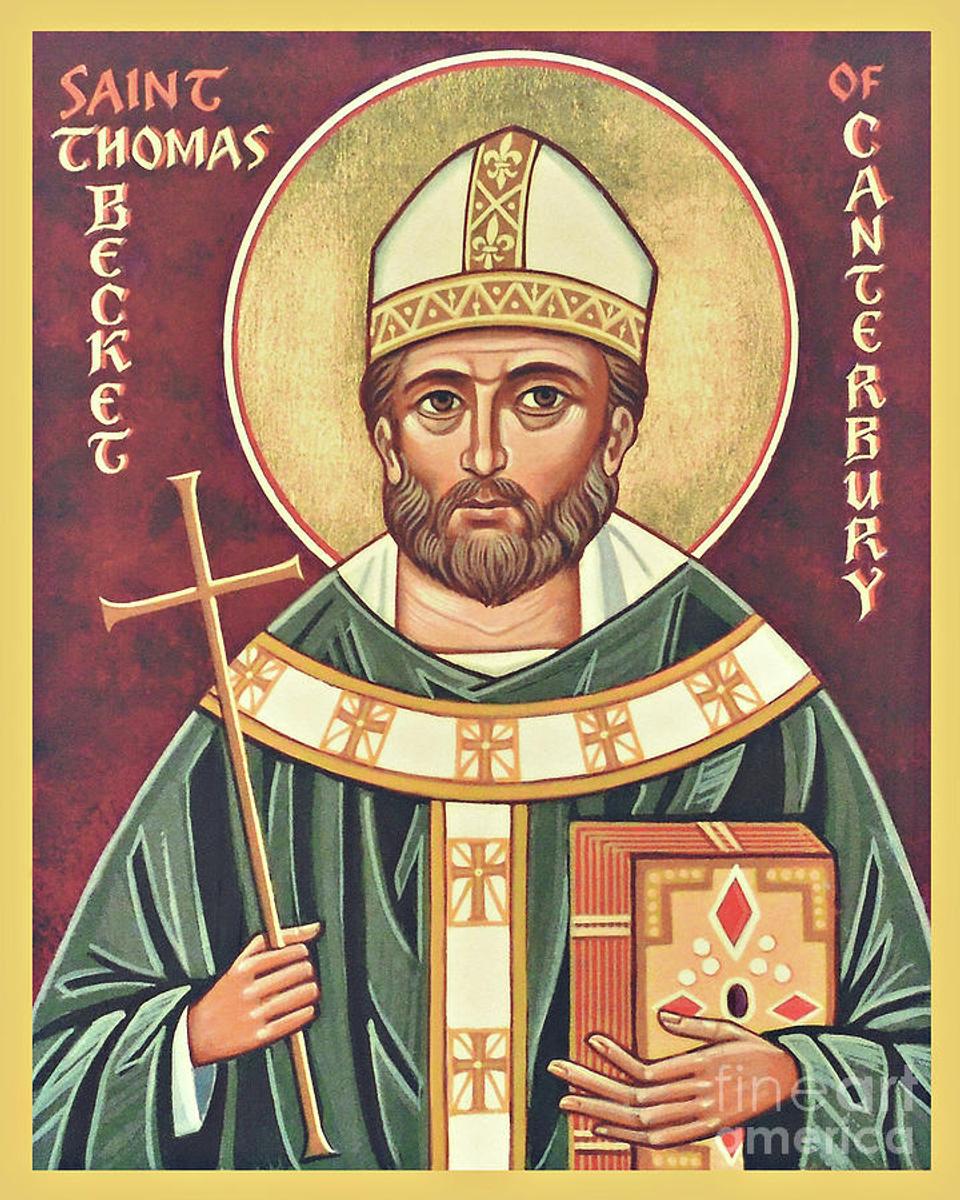Saint's of the Week

Saint Lucy
Feast day:
Virtue: Innocence
Lucy lived in pagan Sicily about the year 300. At an early age, she offered herself to God.
The rich young man who wanted to marry her was so angry when she refused that he accused her of being a Christian.
Lucy was led to the governor of her city for trial. Unable to make her give up the faith, he asked: "Is this Holy Spirit in you, this God you speak about?" Lucy Answered: "They whose hearts are pure are the temples of the Holy Spirit."
The governor spoke angrily: "But I will make you fall into sin, so that the Holy Spirit will leave you." She replied: "I will never sin, so that the Holy Spirit will give me a greater reward."
Nothing could make her commit sin. She said: "You see now that I am the temple of the Holy Spirit, and that he protects me."
The governor ordered a fire to be lit around her, but Lucy was not harmed. At last, a sword was buried in her heart. She did not die until a priest came to her with Holy Communion.
Saint Thomas Becket
Feast Day: 29th December
Virtue: Honesty
Thomas Becket was the son of a rich London merchant. He grew up to be very powerful.
He was archbishop of Canterbury and chancellor to King Henry 11. However, he later fell out of favour with the king and was murdered.
When Henry II became king in 1154 he asked Archbishop Theobald who he should choose to be members of his government. Theobald recommended Thomas Becket. The king then made Becket his chancellor. A chancellor was an important member of the government. Becket prepared writs (legal documents) and royal charters. He also served as England’s representative on trips to other countries and led Henry’s armies into battle.
Henry II and Becket became good friends. When Archbishop Theobald died in 1162, Henry chose Becket as his new archbishop of Canterbury. In this role, he became the leader of the Roman Catholic Church in England. This was not a popular decision, as Becket had never been a priest. He had also enjoyed the finer things in life, such as good clothes, food, and wine. His critics were afraid that Becket would be influenced by the king in matters of religion. They feared that he would not be independent enough as leader of the church.
Becket proved everyone wrong. He became very caring and invited the poor into his home. He fed them and gave them money. He stopped wearing expensive clothes and began wearing monk’s robes. He slept on a stone floor instead of in a bed.
Becket also took the side of the church in several disputes with Henry. The king was not pleased by the changes in Becket. In 1164 he ordered Becket to appear before his courts, accusing him of stealing money while he had been chancellor. Becket denied the charges but offered to repay the money. Henry refused his offer, and Becket fled to France. The king pardoned him in 1170, so Becket returned to England.
However, the two men were still not on good terms. When Henry spoke out against Becket, some of the king’s knights misunderstood him and thought he wanted to be rid of Becket altogether. On December 29, 1170, four knights attacked and murdered Thomas Becket in Canterbury Cathedral.
The Christian world was shocked by Becket’s murder. In 1173 the Pope made him a saint of the Roman Catholic church. For centuries after Becket’s death, many people made pilgrimages to Canterbury Cathedral. Becket was seen as a martyr—someone who was willing to die for his religious beliefs.


